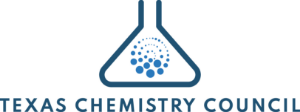Complete Story
05/15/2025
Ad Campaign Funded by Chemical Industry Skirted Campaign Finance Rules
New York Focus | Colin Kinniburgh | May 15, 2025
Ad Campaign Funded by Chemical Industry Skirted Campaign Finance Rules
What exactly did the leading trade group for the US chemical industry pay for when it spent a quarter-million dollars backing New York state lawmakers for reelection?
Until now, it wasn’t clear, because the group that ran the effort last fall failed to file campaign mailers with state election officials, as required by law.
New York Focus revealed last week that the American Chemistry Council, which represents major corporations like DuPont, Exxon, and 3M, poured $250,000 into the reelection campaigns of lawmakers across the state, from Long Island to Syracuse.
The Chemistry Council gave the sum to an independent expenditure committee managed by the Business Council, a lobbying group, late last August for “post NY EPR advertisements,” filings show. That tag is an apparent reference to “extended producer responsibility,” a policy that holds companies responsible for handling their products when they’re thrown away.
The committee, called Jobs New York, spent most of the money on mailers in support of nine candidates, largely Democrats, including three senators who voted last June against the packaging EPR bill that is at the center of Albany’s fight over how to tackle waste. The bill passed the Senate at the time but failed to reach a floor vote in the Assembly. It’s now up for a rematch, and Assembly Speaker Carl Heastie has said he expects the bill to come to a vote this year.
State law requires committees to submit copies of any advertisements they spend money on as part of their campaign finance disclosures, but the group failed to do so. Paul Zuber, executive vice president at the Business Council, called the missing disclosures an oversight and said that the group would send them to the Board of Elections in an amended filing. Records show they were submitted to the agency on Tuesday, around the same time New York Focus spoke to Zuber.
Political groups often fail to fully disclose required information on their campaigns and rarely face consequences, even when they’re caught.
In those instances, election officials usually give campaign groups the chance to correct their filings before they issue any penalty, said Rob Galbraith, senior research analyst at the Public Accountability Initiative, a progressive-leaning nonprofit group.
“The incentive is to break the rules, and then apologize later. … There is an affirmative incentive to make these ‘mistakes,’ or to ‘forget’ to submit these things,” Galbraith said. “This lack of transparency is actually very damaging to the political process. It’s damaging to democracy.”
Zuber sent New York Focus samples of the mailers, which tout the candidates as showing “A+ leadership” for businesses and consumers.
“It was intended to say thank you to those members who have had an open mind about at least giving us an opportunity to talk to them about issues,” Zuber said.
He emphasized that none of the mailers specifically mentioned EPR, even though the Chemistry Council paid for them and referred to the policy in campaign filings. Asked how EPR fit into the ad effort, he suggested it was one of many issues where business groups had lost traction with lawmakers since some moderate Democrats, particularly on Long Island, lost their seats in 2022.
“Obviously, EPR folds into that,” Zuber added. He pointed to Senator Monica Martinez as an example of a lawmaker who has kept an open door. She was among the three Democrats who last year voted against the packaging waste reduction bill and is now sponsoring alternative legislation endorsed by business interests, including the chemical industry.
The American Chemistry Council did not respond to a request for comment.
Assembly deputy majority leader Michaelle Solages, of Nassau County, said she hadn’t seen the mailers supporting her.
“While I can’t speak to why any outside group would independently support me, my record is clear: Extended Producer Responsibility is a sensible solution,” Solages told New York Focus over text. “I have consistently supported initiatives aimed at reducing packaging waste.”
She sponsored the longer-standing EPR bill last year but has not yet signed on to it again this year, and did not reply when asked if she would.

